By John Bryson, MS Ed, CESP Sr. Manager of Employment
NEXT for AUTISM
Two of the most frequently asked employment questions we receive at NEXT for AUTISM are:
- “Should I disclose my disability to a current or potential employer?”
- “What is the best way to disclose a disability to a current or potential employer?”
Whether to disclose a disability at work is a deeply personal decision. The intended and unintended consequences can impact the lives and relationships of the individuals disclosing. For this reason, we advise our readers to seek guidance and weigh the pros and cons of their specific situation, because every situation is unique. It is up to the individual to determine if the pros outweigh the cons. This article is a beginning framework for your decision making.
What is disability disclosure or self-identification?
Disability disclosure is the act of notifying your employer or potential employer that you have a disability. As defined by the Americans with Disabilities Act (ADA), a person has a disability if they have “a physical or mental impairment that substantially limits one or more major life activities, they have a history or record of such an impairment, or they are perceived by others as having such an impairment.”
Disclosure could mean checking a box on a job application or completing a Voluntary Self-Identification of Disability form. Individuals with disabilities – visible or invisible - may disclose their disability during the application process or after they are employed.

Photo credit: Disability:IN
Why Some People Disclose
- The main reason employees and job applicants disclose is to ensure that employers will support them if they encounter challenges at work due to their disabilities. The ADA – the law – obligates the employer to provide reasonable accommodations if employees need them to perform the essential functions of their job. For example, someone with autism who is easily distracted by noise and chooses to disclose their autism, can ask for a reasonable accommodation such as noise-cancelling headphones.
- Having a disability can be a competitive advantage that makes individuals with autism and other disabilities more valuable to the company. Disclosing can be a strategic advantage when looking for a job, especially in companies that desire a diverse talent pool. Do a little research to find out. They typically invest heavily in Self-ID campaigns to encourage their employees to disclose.
- For some people, disclosing can be a step towards well-being. Masking or acting neurotypical to hide one’s autism or invisible condition is a strategy that some people use to avoid disclosure. However, masking can cause long-term strain on their mental health and general well-being, which could eventually cost them their job.
Why Some Do Not Disclose
Disclosing can bring unwanted consequences. People may fear that disclosing will cause them to lose a current or potential job. This is understandable. Some fear discrimination by bosses and co-workers when they disclose; others simply want to avoid the discomfort of having the conversation.
When thinking about disclosing, it is essential to consider several factors related to the company’s culture:
- Does management value diversity?
- Does the company employ and support individuals with disabilities already?
- Are there people with disabilities in its publicity or marketing?
- Has it established relationships with disability organizations?
- Does it provide ADA or disability training to employees?
If many of the answers to these questions are no, then it may not be helpful to disclose.
Ask Yourself These Questions
Before you decide whether to disclose your disability, ask yourself:
- Will accommodations help me perform the essential functions of my position? Contact the Job Accommodation Network for more information about accommodations.
- If I determine that I don’t need accommodations, is it still important to me, on principle, to disclose?
- How will the decision impact my mental health? Will I feel more comfortable or less comfortable disclosing?
Again, disclosing your autism or other disability is a personal decision. We urge you to weigh the pros and cons before deciding what the right answer is for you. Here are additional resources about disclosure that may be helpful: Career One Stop, Job Accommodation Network
If you would like to hear more about how our NEXT for AUTISM team helps create supportive work environments, check out our website, sign-up to receive emails, or follow us on LinkedIn.

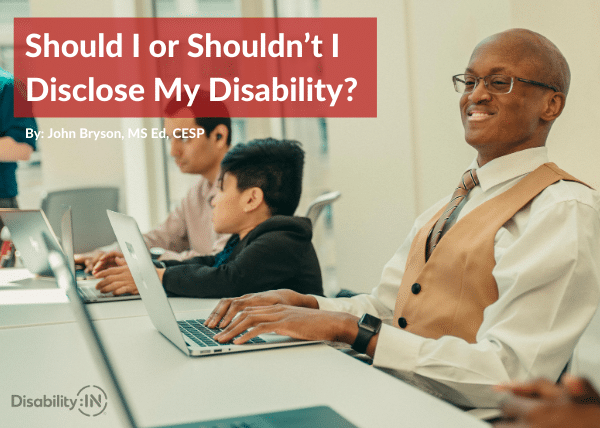
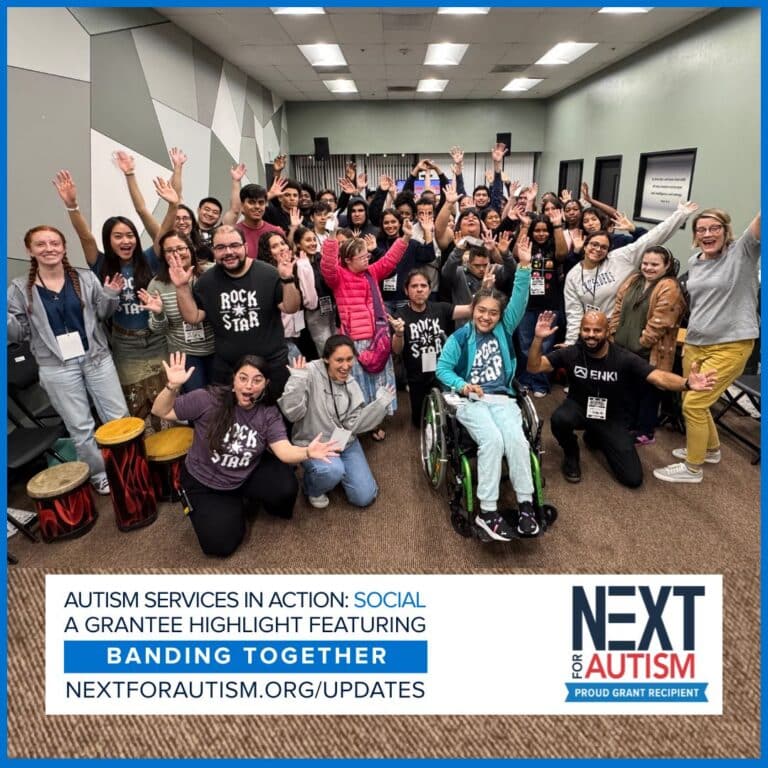
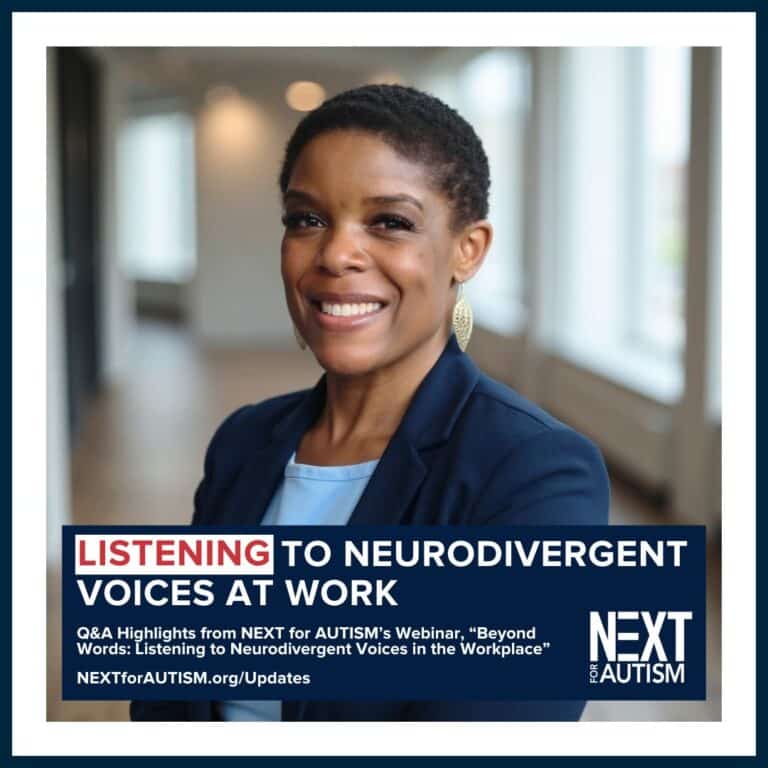
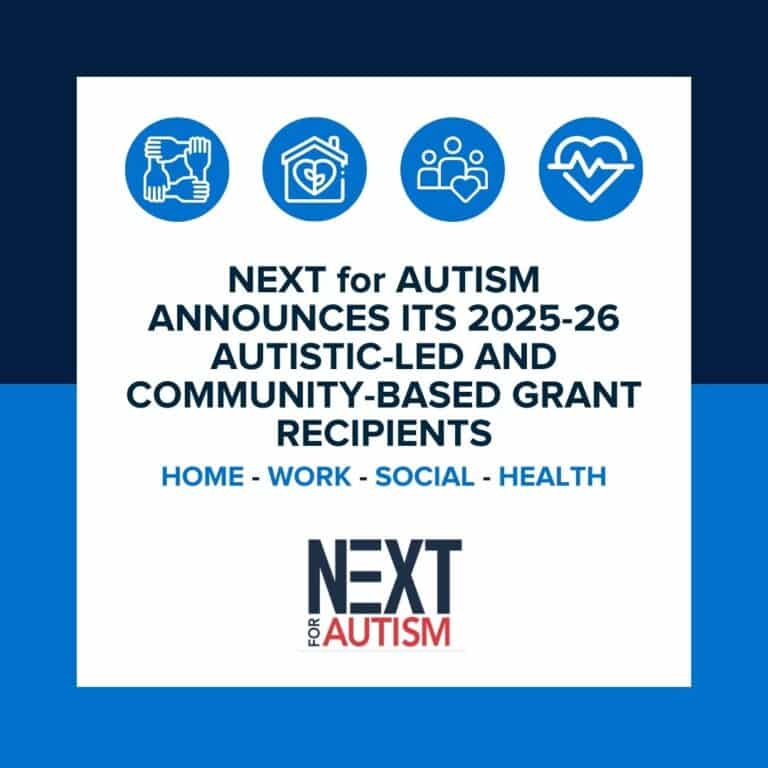

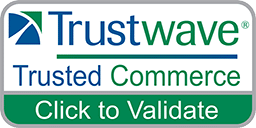
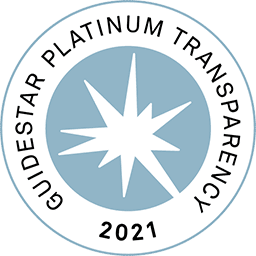
Leave a Reply